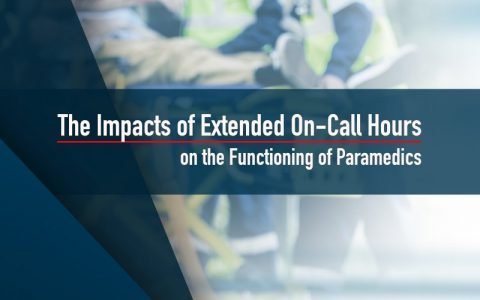

The Alberta Paramedic Association has been engaged in a collaborative review as part of our Professional Fatigue project, to assess the health and wellness effects of the 24 hour shift model currently being used in rural Alberta’s EMS delivery.
During this assessment which included current legislation, frontline consultation and research/literature review. Over the next few weeks, our members will be able to follow this project as we lobby for change and release more information by checking back here in the news feed frequently.
Here is an overview of some of the findings.
Legislation and Consultation
- Shifts exist in rural Alberta using 24 hour, 48 hour and 96 hour scheduling in different variations that do not involve scheduled breaks.
- There are -/+ 192 ambulances in Alberta using a variation of 24, 48 and 96 hour scheduling.
- The Traffic Safety Act regarding hours of service regulation explicitly excludes Paramedics operating an ambulance.
- Neither the Health Professions Act, Emergency Health Services Act, Commercial Vehicle Drivers legislation, nor the Occupational Health and Safety Act addresses limiting hours of work or ambulance operation.
- “Recent changes to employment standards legislation did not amend or make changes to the standards for ambulance attendants.” Hon Christina Grey, Labour Minister
Paramedic Health and Safety Risk
- Humans require 6-8 hours of uninterrupted rest in a 24 hour period to mitigate sleep starvation and sleep deprivation
- With no rest periods scheduled, aforementioned paramedics are at risk of sleep starvation and sleep deprivation
- Sleep starvation increases the risk of cancer, dementia, depression and PTSD
- Sleep starvation exacerbates sleep pathology by increasing the length and pathophysiology of sleep apnea
- Frontline paramedics are currently reporting using sick time to “catch up” on sleep.
- Paramedics lacking scheduled breaks for extended periods have no access to personal psychological supports
- Cognitive performance after 18 hours of wakefulness mimics blood alcohol levels of 0.10
- Eye-hand coordination at 8 AM after being awake all night has been correlated with a blood alcohol level of 0.10
View or print the full report: The Impacts of Extended on-Call Hours on the Functioning of Paramedics (PDF Format)
